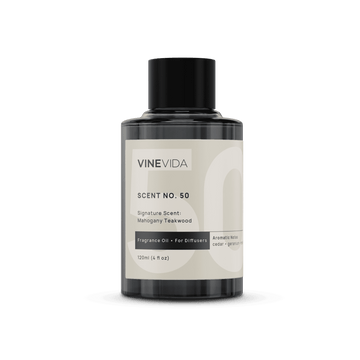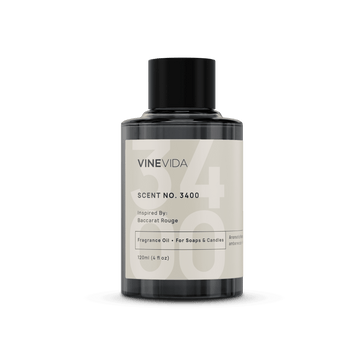Essential Oils support our ability to heal and live happier and calmer lives. Providing certain guidelines are observed, they are safe and simple for most people to use. However, essential oil constituents interplay with a number of biological processes. This means that they can sometimes be problematic for certain conditions, or can interact unfavorably with prescribed medications. Moreover, often the “poison” of the plant comes in the dose. Most are benign, in small dilutions, or when used only occasionally. Overuse and misuse can both also cause issues. For this week of safety month we are musing on the question: what does contraindication mean when you are using essential oils?
Contraindication
A factor that renders the administration of a drug or the carrying out of a medical procedure inadvisable.
https://www.dictionary.com/browse/contraindication
Here’s where we hit our first snag.
As essential oil vendors, Vinevida cannot say that essential oils can treat anything. Treat is a medical word, and because essential oils have not undergone the rigorous testing through clinical trials to prove they will act in the same way for every person using them,
we cannot refer to an essential oil as a treatment (or drug).
You may be surprised to hear us say “And thank goodness for that!”
Here’s why.
Nature is a fickle mistress, so essential oils can never be patented as drugs. The chemical makeup of each oil differs slightly every time you distill it, based on how much rainfall, sun, etc. the plant has enjoyed through the year. No two batches of essential oils are ever going to be the same.
That’s the majesty of our therapy.
Thus it is impossible to predict all outcomes of using an essential oil at any given time. (That’s even before we start thinking about all the opinions around how to administer them, of course!)
What we can do, though, is give reasonable predictions of how we expect oils to act in certain situations.
And truly, you need to be an aromatherapist to do that. That’s the difference between our training and the vendors’.
What Does Contraindication Mean In Aromatherapy?
Aromatherapists are not only trained in the properties of the oils, we also comprehend it from the point of view of what happens to someone’s body, understanding that while an oil doesn’t have side effects, what it does have is many main effects.
When you use an essential oil, it should always be accepted that it is going to affect other bodily functions behind the scenes.
So, in Europe, whilst aromatherapists still cannot label their products as being for “Eczema / Psoriasis / Rheumatism” providing a one-to-one consultation takes place, which gives room for a conversation, then it is perfectly legal for “prescription” of oils to be given because they can assess their existing prescribed drugs etc.
So then, we really need to rewrite the definition of contraindications for this situation, don’t we?
Contraindications for Essential Oils
Factors that render using a certain essential oil, or the carrying out of a particular application of its use inadvisable.
What Does Essential Oil Contraindication Mean In Terms of Pregnancy
Using essential oils during pregnancy may be risky but, in truth, we don’t fully understand the effects on the unborn child because experimenting on fetuses would be highly unethical.
Pregnancy contraindications are based on what we understand an oil does in the body.
First, oils that are contraindicated in pregnancy are often uterine tonics. That means that the uterus will tighten and relax. That’s effectively a contraction, so we certainly wouldn’t want that.
Other oils like clary sage mimic estrogen. Pregnancy requires a progesterone-rich substrate to survive. Adding more Clary Sage, which the body kind of “mistakes” as being estrogen, might compromise that.
These are the concerns that create the guidelines of not using oils like Rose, Jasmine, Myrrh and Clary Sage until after 37 weeks.
The blanket advice of not using essential oils until after the 16th week of pregnancy is because antimicrobial oils like tea tree cause immune responses and evict foreign invaders. Does the body recognize an embryo as a foreign body at the beginning of its life? The truth is, we just don’t know.
It is, however, understood that some essential oil constituents are passed from mother to baby in the blood flow across the placenta. Imagining that intimate connection between your unborn child and our oils makes us want to be even more cautious than we perhaps need to be.
What does Contraindication Mean For Medications
One of the key ways to understand how your essential oil acts with the medications your doctor’s given you, is to know how your body metabolizes your drug.
How do you do this?
Look at the scary piece of paper that comes in the box with your medication. You know the one…it always lists side effects beginning with headaches and nausea then ends with “death”!
Honestly, who needs horror films when you have those things!
What you’re looking for is a number beginning with the letters CYP. These are cytochrome enzymes and they affect how our bodies come into homeostasis.
Several oils and constituents have been found to inhibit CYP enzymes (Tisserand, 2013) and alter the way they metabolize pharmaceutical drugs as they pass through the liver. In simple terms, they may change how the drugs affect you. Drugs sometimes act differently your body is also trying to process certain essential oils. You might end up with more or less of the drug in your bloodstream than your doctor expected. Neither of those things would be good, clearly. Theoretically this could also make the side effects listed on the scary paper a lot worse too. (Although, dead…presumably that stays the same? ) You can find more details around this in the Tisserand book linked to the referencing.
Good examples, however, are Hyssop, Rosemary, Peppermint, Thyme, Eucalyptus, and Sage essential oils are all best avoided by people who take blood pressure medications.
Certain Illnesses Need Extra Care
It’s best for people with low blood pressure to avoid oils that are very sedative. In particular, Ylang Ylang, Clary Sage are contraindicated. High doses of Lavender might also be a bad plan for people with low blood pressure.
For people with epilepsy or the risk of seizures, avoid stimulating essential oils such as Sage, Hyssop, Eucalyptus, Sweet Fennel and Rosemary. Another term you can look out for is “neurotoxic”. Neurotoxic oils often spell problems for people with epilepsy.
Asthmatics should be careful with Peppermint and Eucalyptus essential oils. The menthol and 1,8 cineole constituents are known to slow the breath and could be troublesome for those with asthma.
What Does Contraindication Mean For Children?
That’s a great question. In the comment above, we talk about how eucalyptus and peppermint would be contraindicated for people with asthma. In fact, care should be taken using those oils for exactly the same reasons, which kids.
How harmful would it be for an adult’s breathing to change? All things being equal, probably not that much. But asthma being added into the mix then makes that more problematic, because they are already in a weakened state.
The same applies for children with colds, and this also explains why you sometimes see conflicting guidelines surrounding this. Just as all adults are not equal, neither are all children. They already have delicate dispositions, so the guidelines tend to be stringent because we cannot legislate for all other factors of their health.
What does Contraindication mean In Terms of Dosage?
Dosage can have two meanings here. The first might be how much you use in preparation. That is, your percentage dilution might be higher than would normally be recommended. The second is using an essential oil for too long, or over an extended time. I’d add that using essential oils with inadequate ventilation can also be contraindicated too.
Let’s have a look at those:
Higher Levels Of Essential Oil Use
We dilute essential oils before using them on your skin for several reasons. Mostly though, it’s about irritating the skin or making long term changes to it. Not following established guidelines of dilution risks skin irritation and sensitization.
Long Term Usage
Liz often tells the story of how she became sensitized to Lavender.
Her mother was one of the first aromatherapists in the UK and they had a manufacturing company that made over 100 different products. Huge numbers of them had at least some lavender in them. Whole days would be given over to production, so she was consistently taking on lavender constituents. Now, even inhaling lavender gives her a headache.
What Does Contraindication Mean When It comes to Shelf Life?
Essential oils that are old, out of date, or oxidized should not be used on the skin because they can cause sensitization and skin irritation. Diffusing old or oxidized oils can cause irritation to the mucous membranes and cause breathing problems.
Summary
The question of “what does contraindication mean” alters as you do. It will change if you are prescribed new medications or get pregnant. The same applies if you suddenly have to start using more oils for some reason, or indeed as the seasons change. Citrus Essential Oils would be contraindicated in sunshine, since they can irritate the skin, for example. The risk when you are covered up by a big coat and jumper are obviously different to when you are wearing a bikini. Don’t let the guidelines scare you. We’ve both been in that panic that you can’t use any oils! Instead, use with caution and care and you’ll see some spectacular results.














